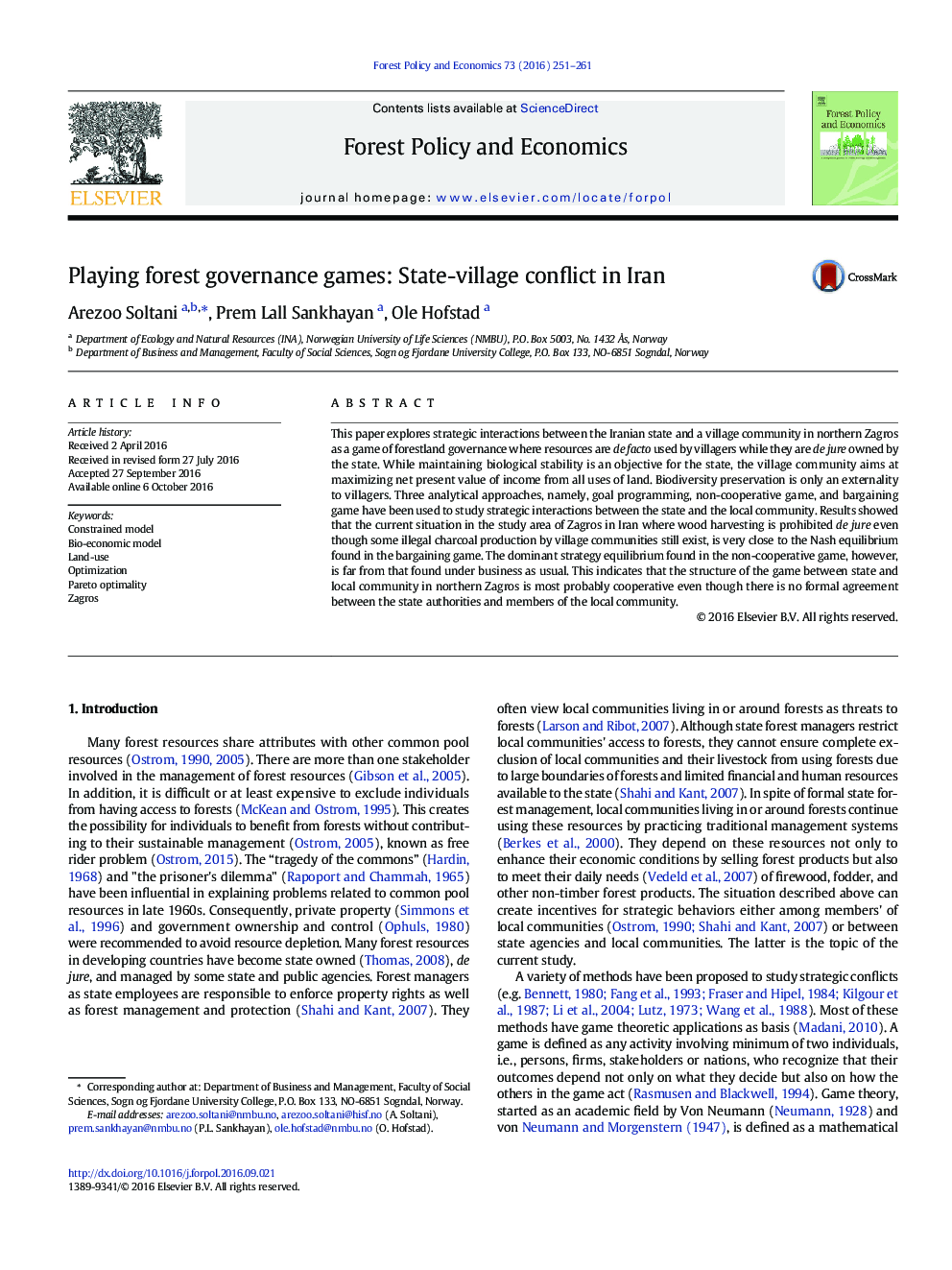| کد مقاله | کد نشریه | سال انتشار | مقاله انگلیسی | نسخه تمام متن |
|---|---|---|---|---|
| 6459864 | 1421666 | 2016 | 11 صفحه PDF | دانلود رایگان |
- Abandoning customary rules is villages' dominant strategy in prisoner's dilemma game.
- The village still maintains the customary rules.
- The current situation in Zagros is close to the bargaining Nash equilibrium.
- The structure of the game between state and villages in Zagros may be cooperative.
This paper explores strategic interactions between the Iranian state and a village community in northern Zagros as a game of forestland governance where resources are de facto used by villagers while they are de jure owned by the state. While maintaining biological stability is an objective for the state, the village community aims at maximizing net present value of income from all uses of land. Biodiversity preservation is only an externality to villagers. Three analytical approaches, namely, goal programming, non-cooperative game, and bargaining game have been used to study strategic interactions between the state and the local community. Results showed that the current situation in the study area of Zagros in Iran where wood harvesting is prohibited de jure even though some illegal charcoal production by village communities still exist, is very close to the Nash equilibrium found in the bargaining game. The dominant strategy equilibrium found in the non-cooperative game, however, is far from that found under business as usual. This indicates that the structure of the game between state and local community in northern Zagros is most probably cooperative even though there is no formal agreement between the state authorities and members of the local community.
Journal: Forest Policy and Economics - Volume 73, December 2016, Pages 251-261
